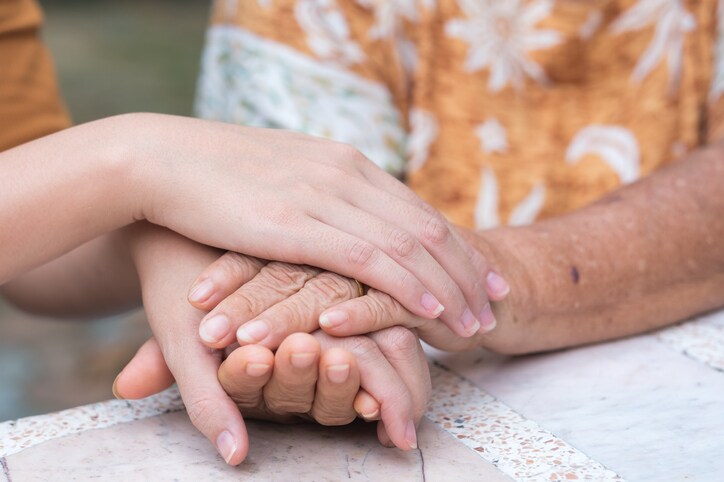Why do we feel this way? Here are 4 tips for dealing with the guilt that can come from being a caregiver.
Guilt is a common emotion for family caregivers to experience. It could be due to feeling as if you’re not doing enough for a loved one, or because you want some time for yourself, or because you need someone else to help you carry the load. More than likely, it’s a combination of all of this and more.
Registered nurse, Lisa Abdallah, confirms that most caregivers are familiar with guilty feelings.
“I think the main reason why we feel guilt is because we want the very best for our loved ones, and when caregiving becomes difficult to manage on our own, the guilt can set in as we begin contemplating other alternatives of care outside of the home or provided by individuals outside of the family,” Abdallah says. “Guilt comes from the feeling that we may be doing something wrong.”
It may not be a happy feeling for anyone, but guilt can be productive — and even positive, depending on how you look at it. Studies have shown that guilt-prone people are generally more empathetic and more adept at understanding others’ perspectives. It forces us to take a step back and look at what we’ve done (or not done), and hold it up against our values.
So, the challenge then isn’t eradicating guilty feelings, but rather managing them in a way that prioritises your own mental and physical health.
Alicia Fenstermacher, corporate director of a senior living facility, notes that excessive guilt can result in a lack of self-care on the part of the caregiver.
“It can lead to burnout and compassion fatigue,” she says. “If caregivers do not take care of themselves, they may choose to relieve their stress in a negative manner such as using drugs or alcohol to escape responsibilities. Increased stress can cause the caregiver to become medically compromised, as well.”
Here are four ways to manage caregiver guilt:
1. Listen to your feelings
Resist the urge to ignore or repress guilty feelings. Abdallah says guilt can be constructive for caregivers when they take the time to analyse its origins.
“It is a trigger for us to self-reflect and ask ourselves, ‘Why are we feeling this way?’ It is a catalyst for action, and if we ignore it, we will continue to feel awful and it could lead to strained relationships with our loved ones,” she says. “So, it’s important to use it as a mechanism to move forward with our family members and set forth a plan that will work for everyone.”
2. Talk about your guilt
Connecting with other caregivers on social media can be a great source of comfort. You can look for support groups on Facebook to start. Caregivers can start processing and managing guilt by having access to open and safe places to express their feelings.
3. Don’t be ashamed to ask for help
A loved one’s needs may change over time, and so may your own abilities to care for them. That’s why it’s important to have conversations early and often about what you feel capable of providing in terms of care, and when you need help. Try setting boundaries and being open and honest about what family caregivers can contribute.
4. Make time for yourself
Guilty feelings often crop up when caregivers step away from their loved one to take a break or spend time with others, but this personal time is an important part of being an effective caregiver. It is vital that caregivers have their own downtime, can go out with friends or relax in a soothing environment. It is important that caregivers keep their own lives going so they have a life to return to if their loved one passes away or no longer needs their care.
Guilt is an unavoidable symptom of caregiving, but recognising that is the first step in dealing with it in a healthy way.
Read Next: A Caregiver’s Guide to Dealing with Dementia
Read Next: How to Be A Great After-School Sitter
